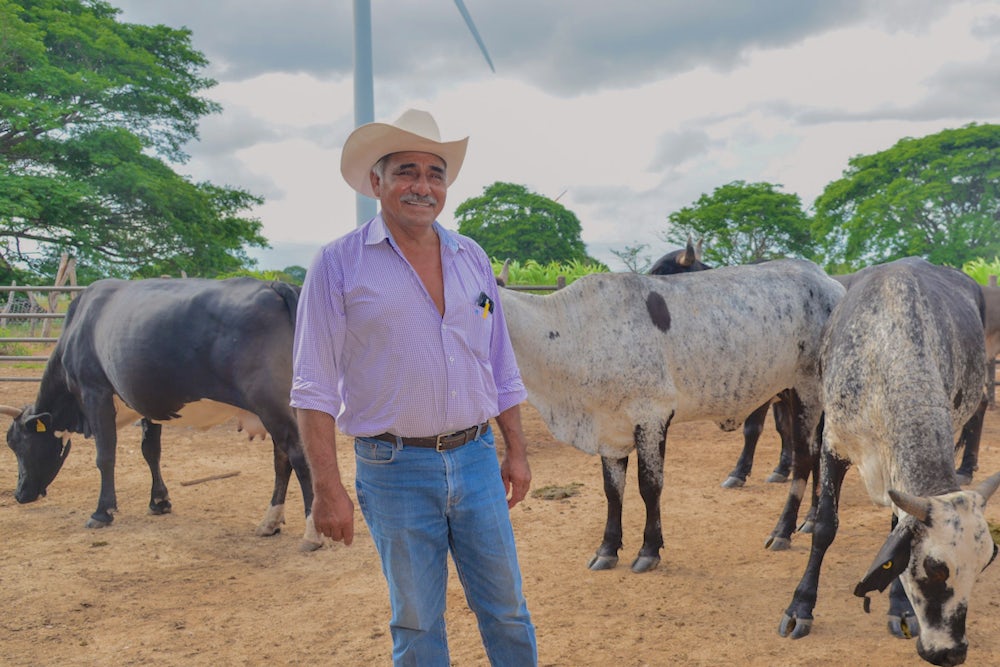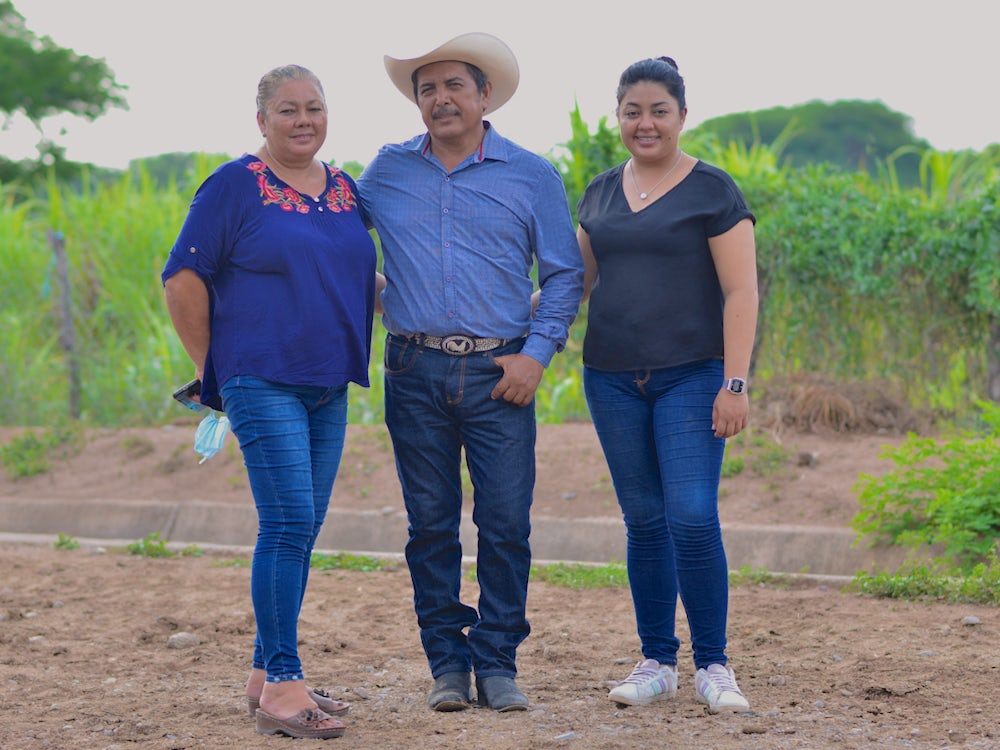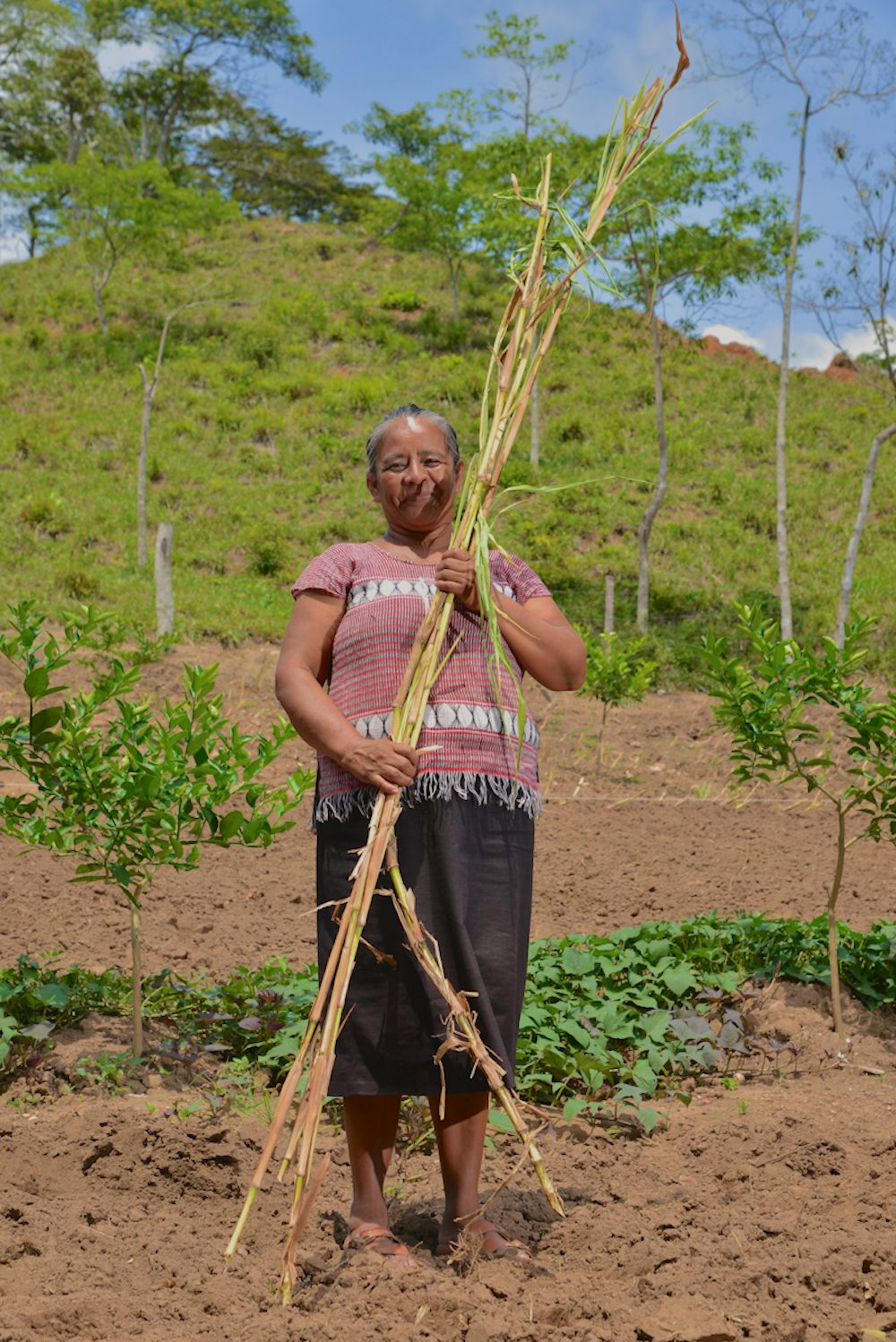Cattle farming in rural Mexico is often a solo or family endeavor. But in the southernmost states of Oaxaca and Chiapas, being a one-person business carries a number of consequences — so collaborating helps farmers reduce those consequences as part of a community.
Faced with insufficient essential resources such as water, animal health services, quality and balanced feed, and revenue to pay labor, as well as poor access to critical business resources like finance, markets and technology, many livestock farmers in these regions devote most of their time caring for animals, only to see limited returns.
Under these circumstances, dairy and beef farmers in Oaxaca and Chiapas earn well below a living income, which is the amount of money a family needs to live a healthy and dignified life. They face cases of disease, which hampers milk production and limits household nutrition and earning potential. And low productivity means less food is available in the community, which can have ripple effects on regional development and food security — especially under the strain and limitation of COVID-19 on local food systems.
“This is forcing [farming] families to find other sources of income,” said Raquel Salgado, project manager for Heifer Mexico, explaining that farmers are often forced to work multiple jobs to make ends meet. “They have an ecosystem they could manage and benefit from, but they aren’t earning the income that is equal to their efforts and their investments.”
In response, Heifer International has launched the Accelerating Incomes Through Diversification project, a partnership with the Walmart Foundation intended to strengthen local food systems and improve the profitability of smallholder dairy and beef farming.

The project builds on progress from a previous initiative funded by the Walmart Foundation, Rural Entrepreneurs, and will work through existing farmer producer organizations in Oaxaca and Chiapas to offer comprehensive resources, including business and technical training. The project aims to empower members to work together to transform individual subsistence livelihoods into collaborative, income-generating enterprises.
“Working with families to reach a living income is at the core of Heifer Mexico’s programs to build resilient, thriving farming communities,” said Gustavo Maldonado, country director at Heifer Mexico. “By improving the operations, training and resources that producer organizations provide to farmers, we are creating a platform for farmers and businesses to earn more money, providing long-term stability.”

With 20% female participants, Accelerating Incomes Through Diversification aims to encourage participation of women in the beef and dairy value chains by promoting the work of women already in the industry, like 28-year-old Guieeniza Izamal Enríquez-Toledo, and supporting more women like her to take leadership roles in producer organizations.
"Don't be intimidated by the gender disparity,” Enríquez-Toledo said. “You learn a lot in livestock, and you enjoy it. The farmers have treated me well. … I think it has been customary for women not to get involved in livestock issues, but I have had a very good response.”

The project also prioritizes climate-smart agriculture and will include training in sustainable practices like more efficient water and land management, silvopastoral systems, which combine growing trees and raising livestock, and producing Cuba 22 grass, a low-maintenance, drought-resistant grass grown as a protein-rich cattle fodder.
The Cuba 22 grass serves as a critical bridge between the previous and ongoing project and the area’s communities. Following Heifer’s Passing on the Gift® model, in which project participants share the support they’ve received with others, farmers from the Rural Entrepreneurs initiative provided the initial Cuba 22 seeds and instructional video on how to grow it for the current project’s participants.
"My first interaction with Heifer was when they donated fodder seeds,” said Francisco Toledo, a cattle farmer in El Espinal, Oaxaca. “I sowed it because one of the fundamental problems that we farmers in Espinal and this region suffer from [is] a lack of fodder. I believe that the material they gave us means hope, and then we help each other by Passing on the Gift."
Building on a foundation of solidarity and cooperation, smallholder beef and dairy farmers will be better positioned to work jointly to improve their animals’ production, contribute to local food systems, professionalize their producer organizations, and establish secure livelihoods they can depend on for years to come.
